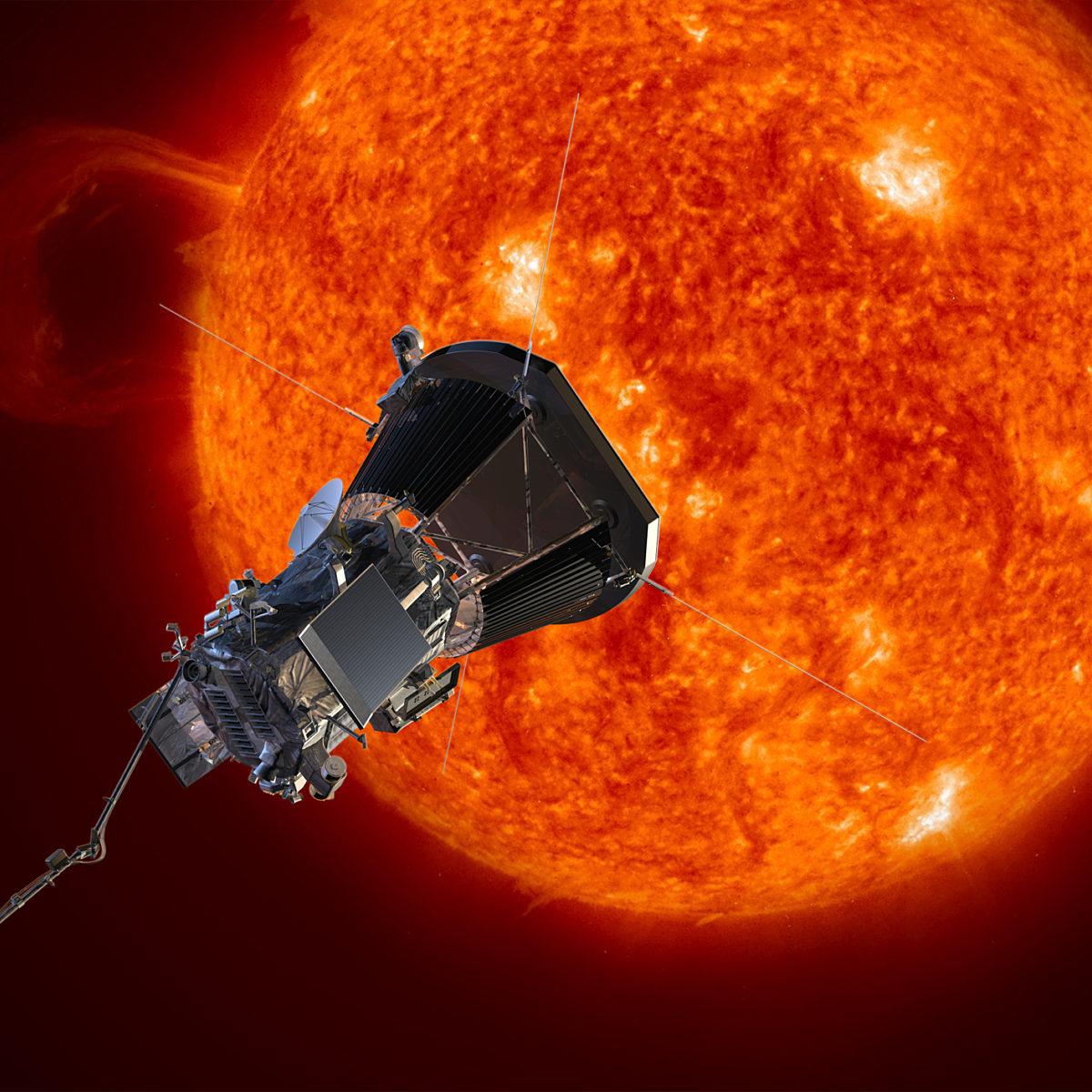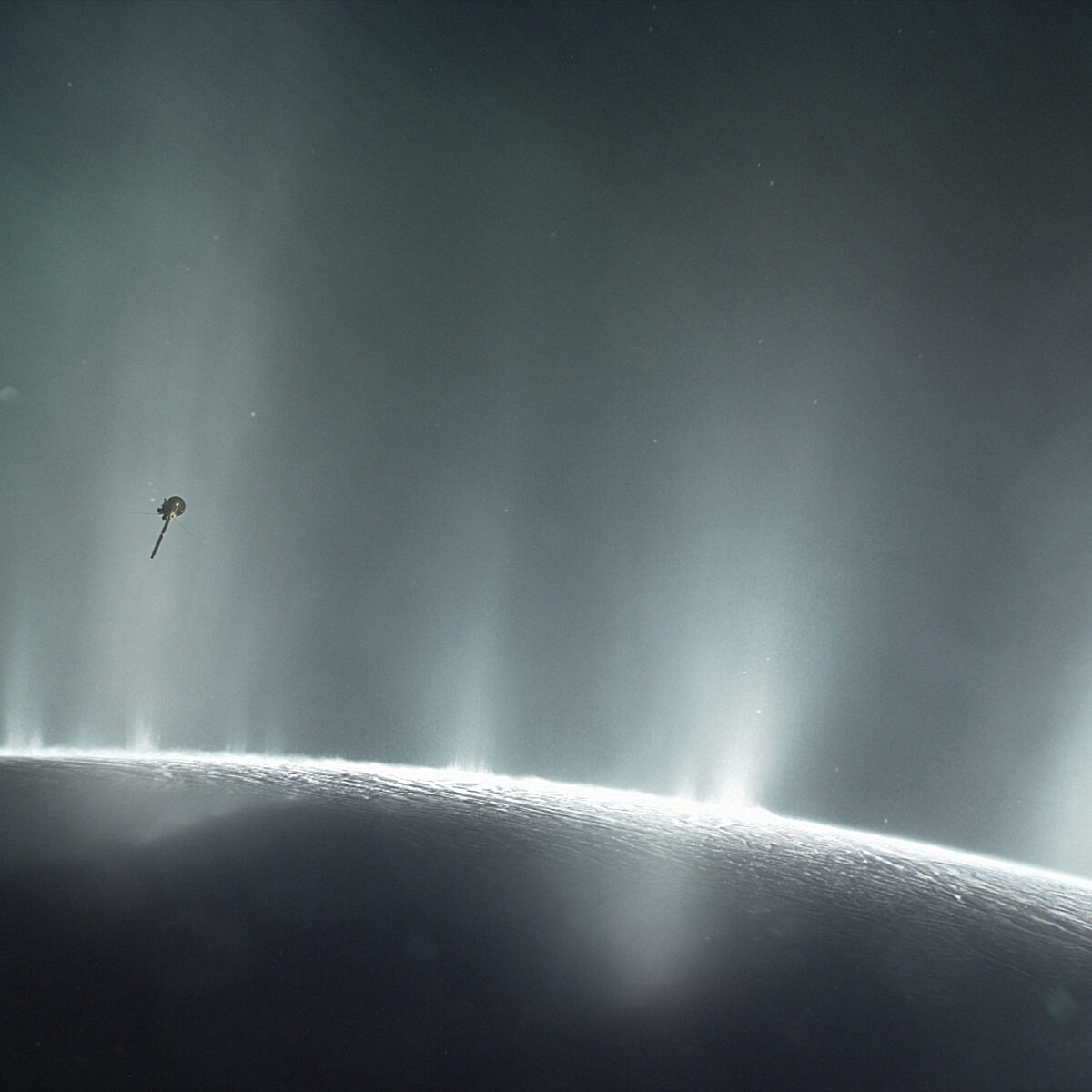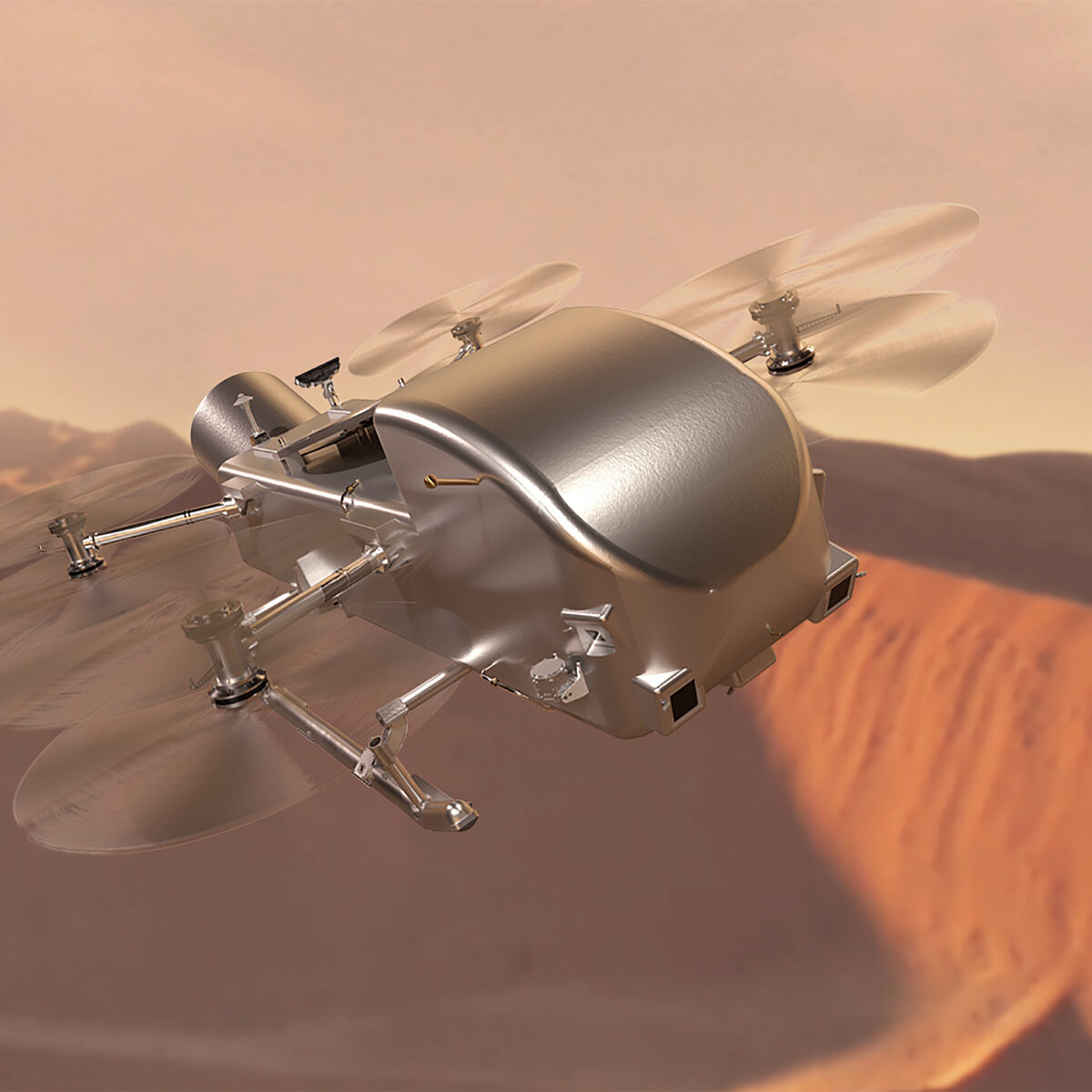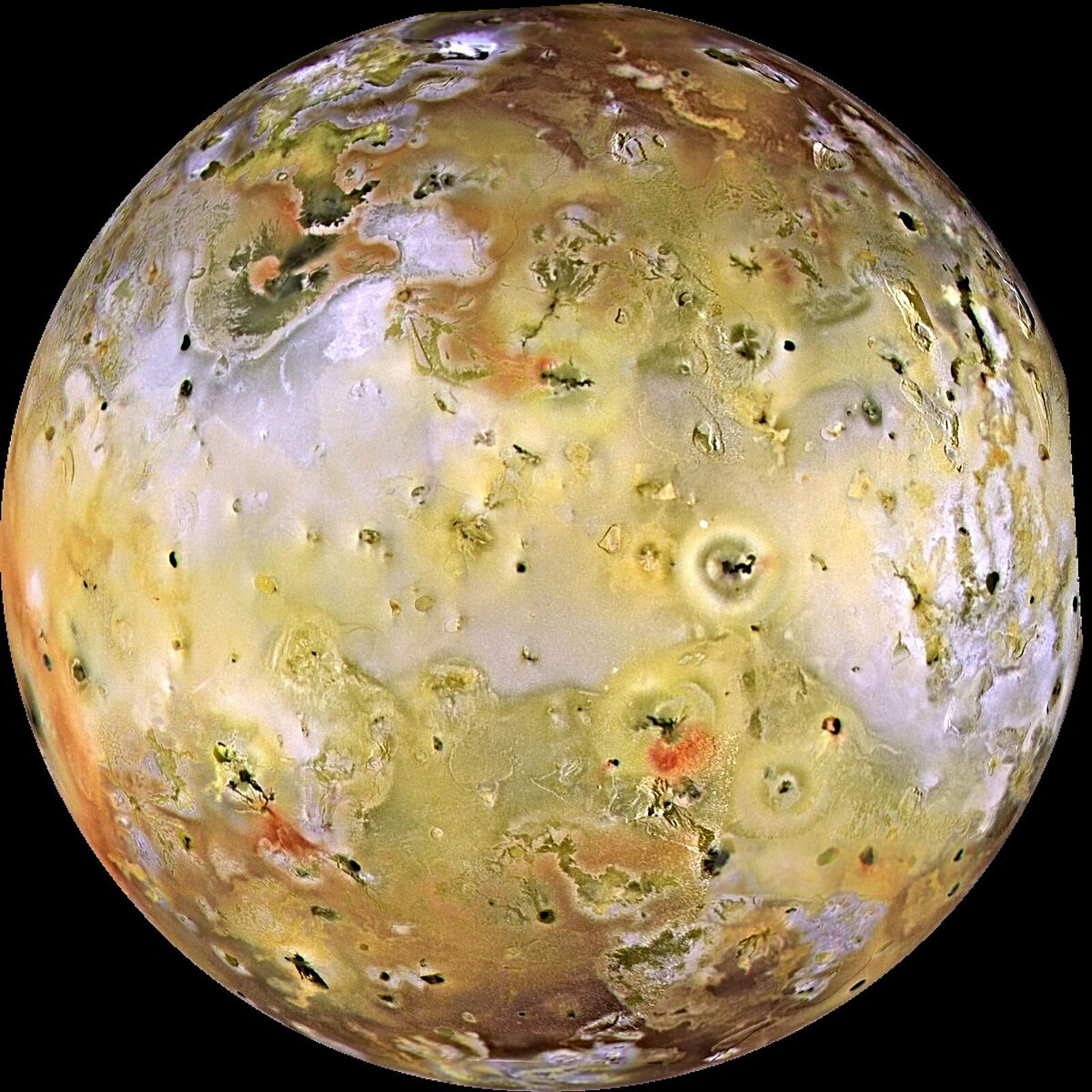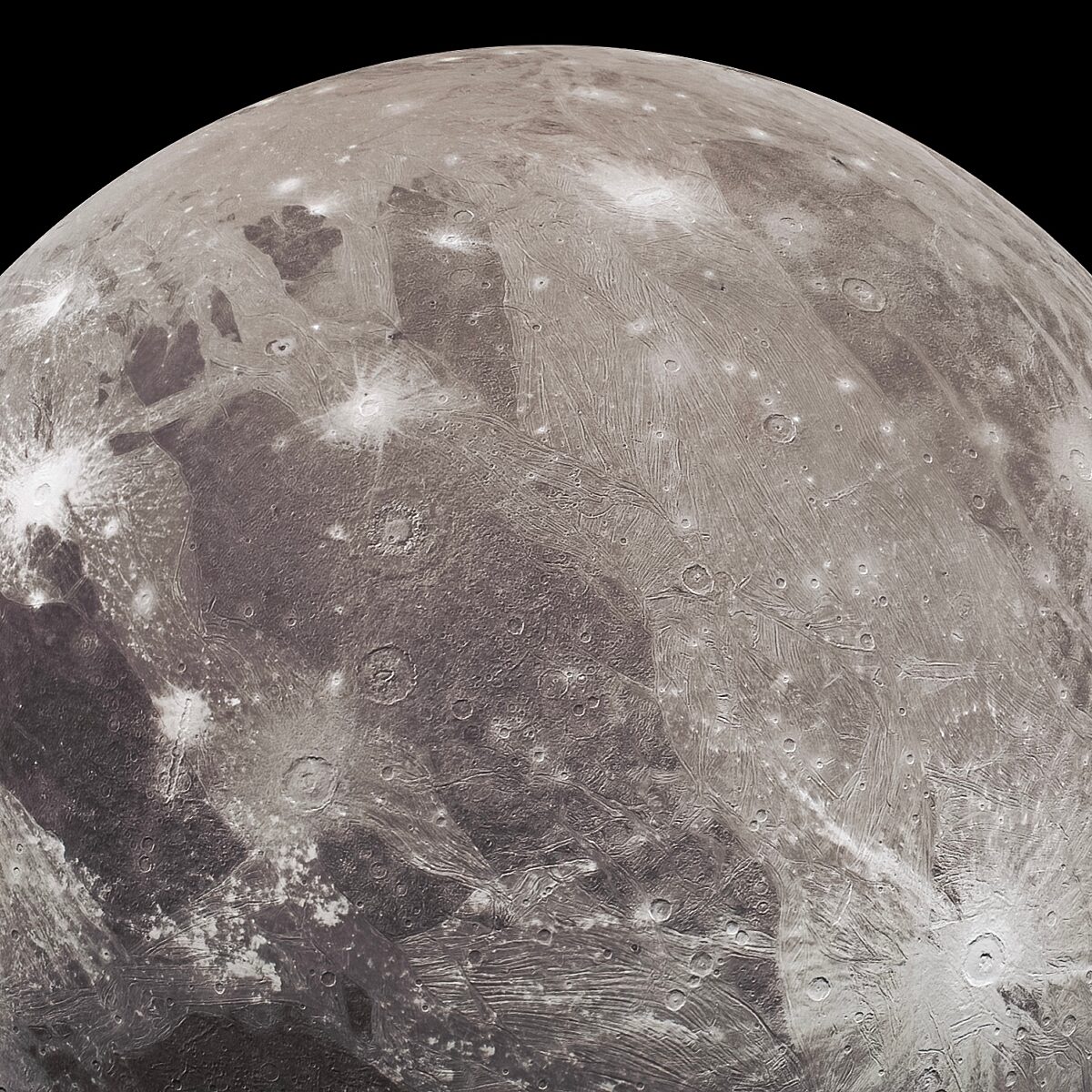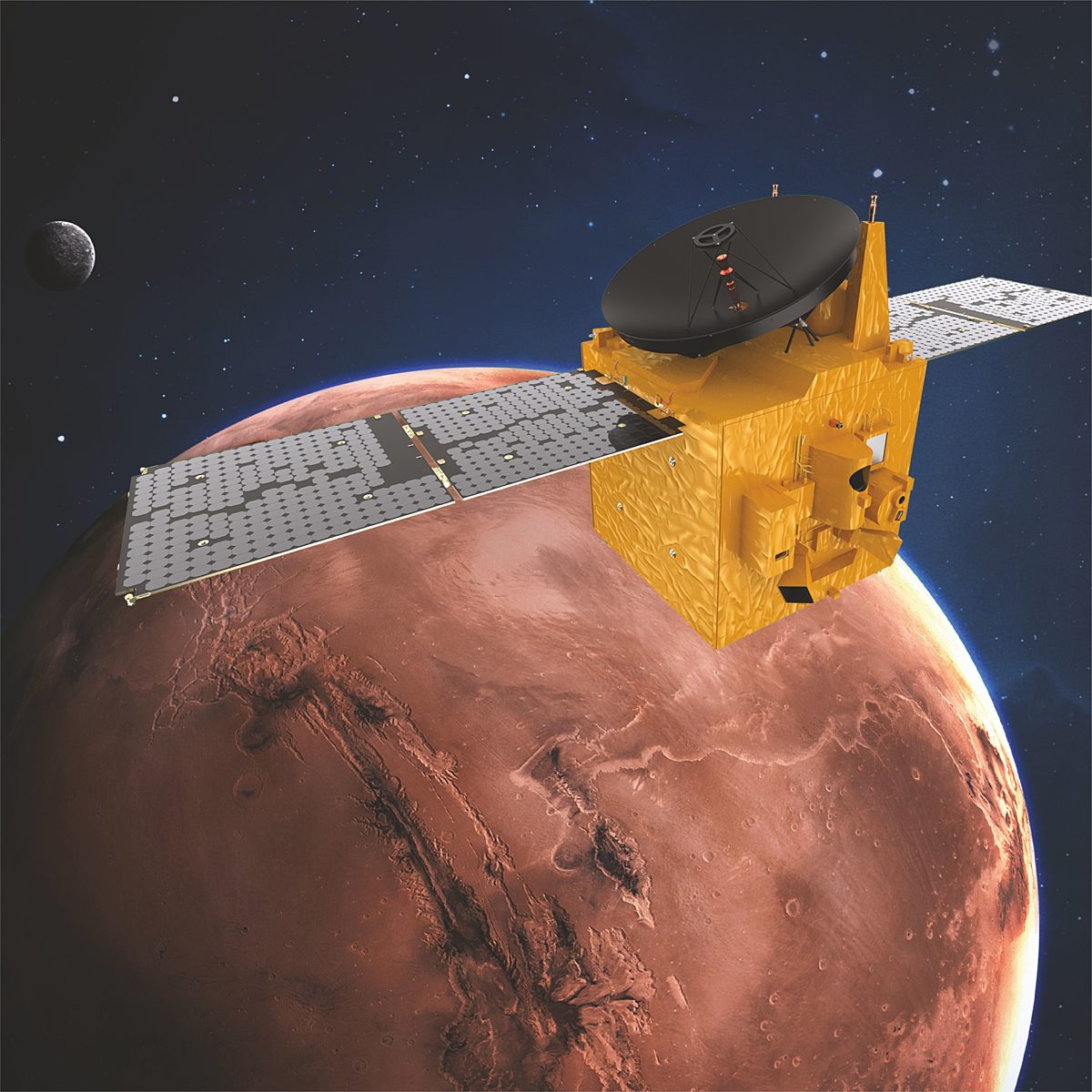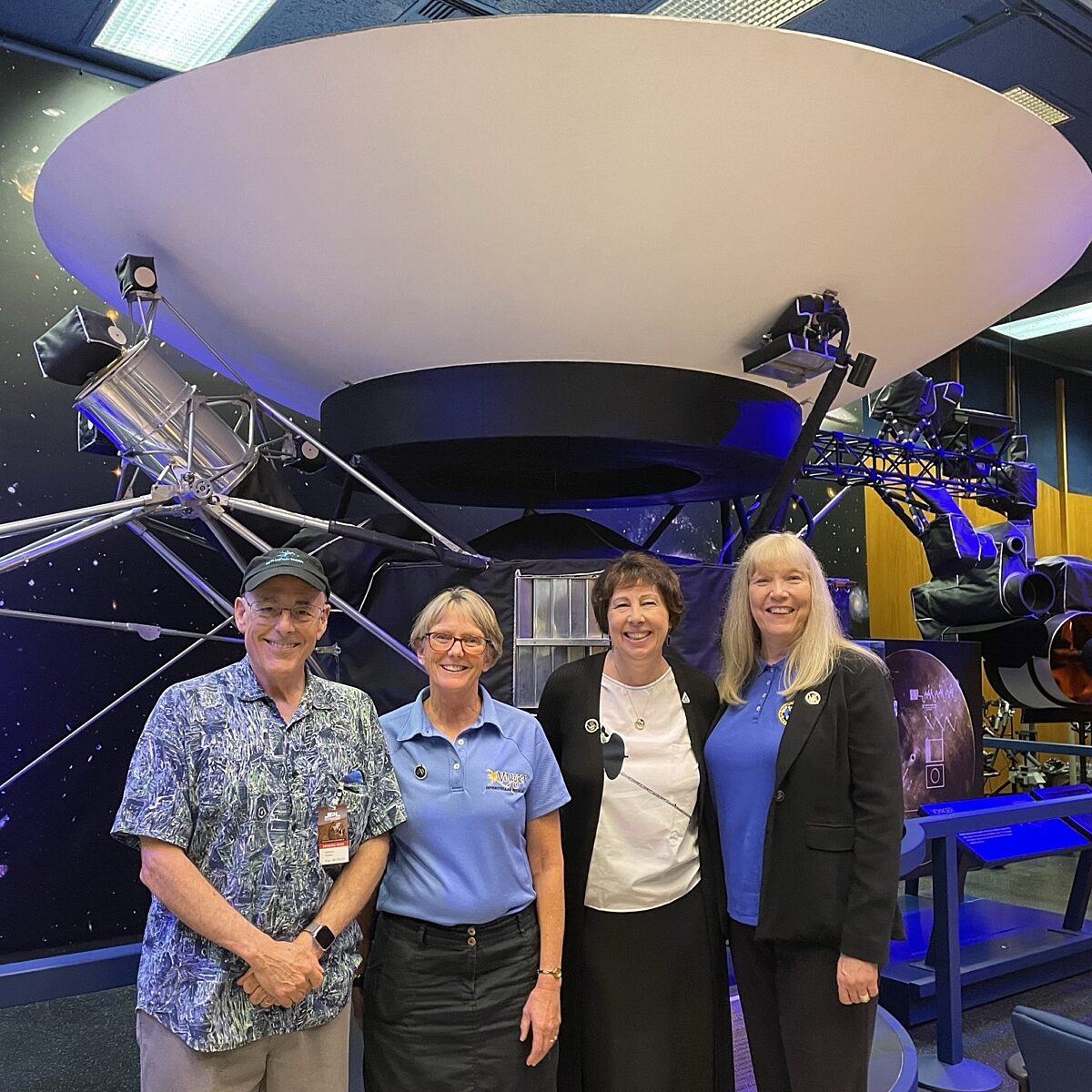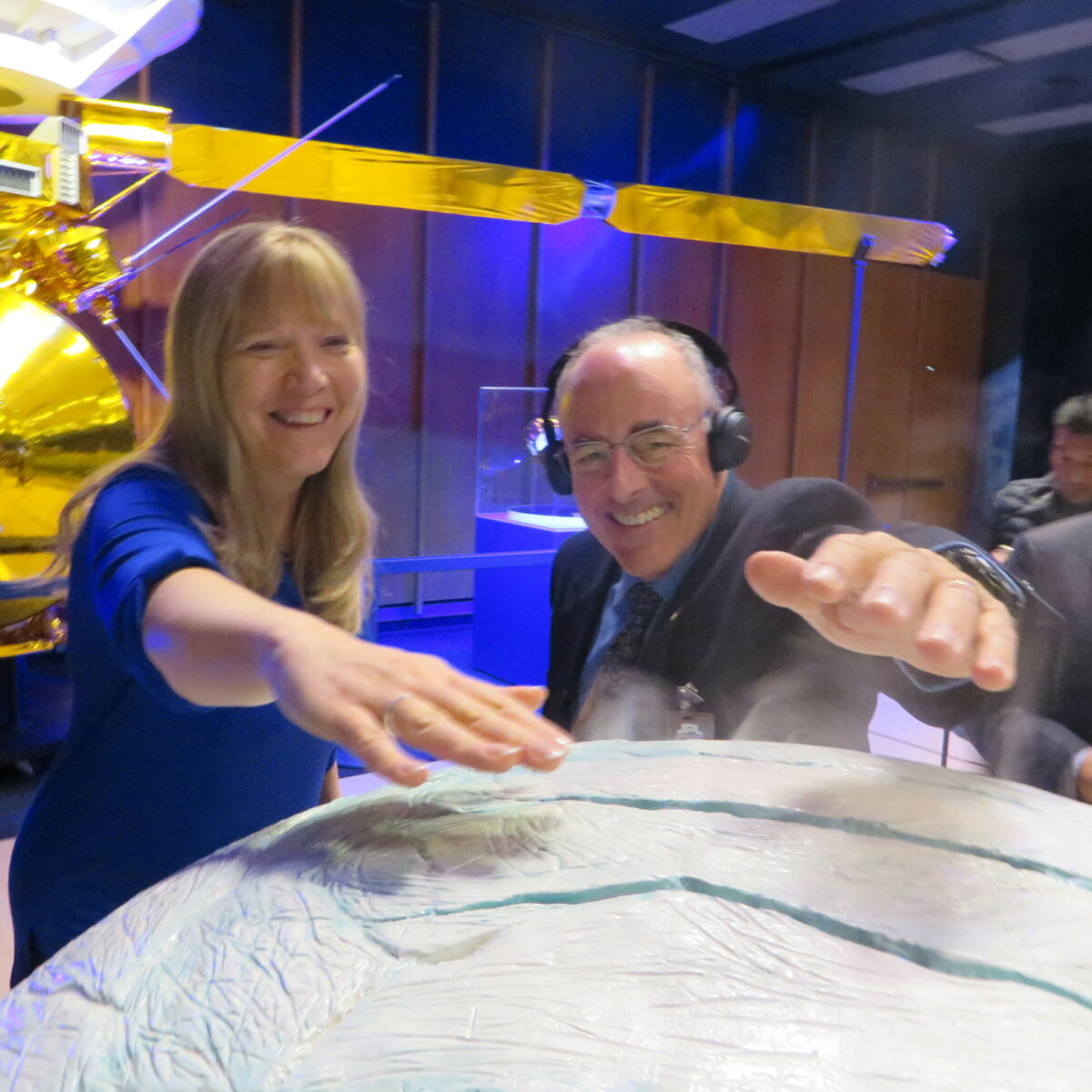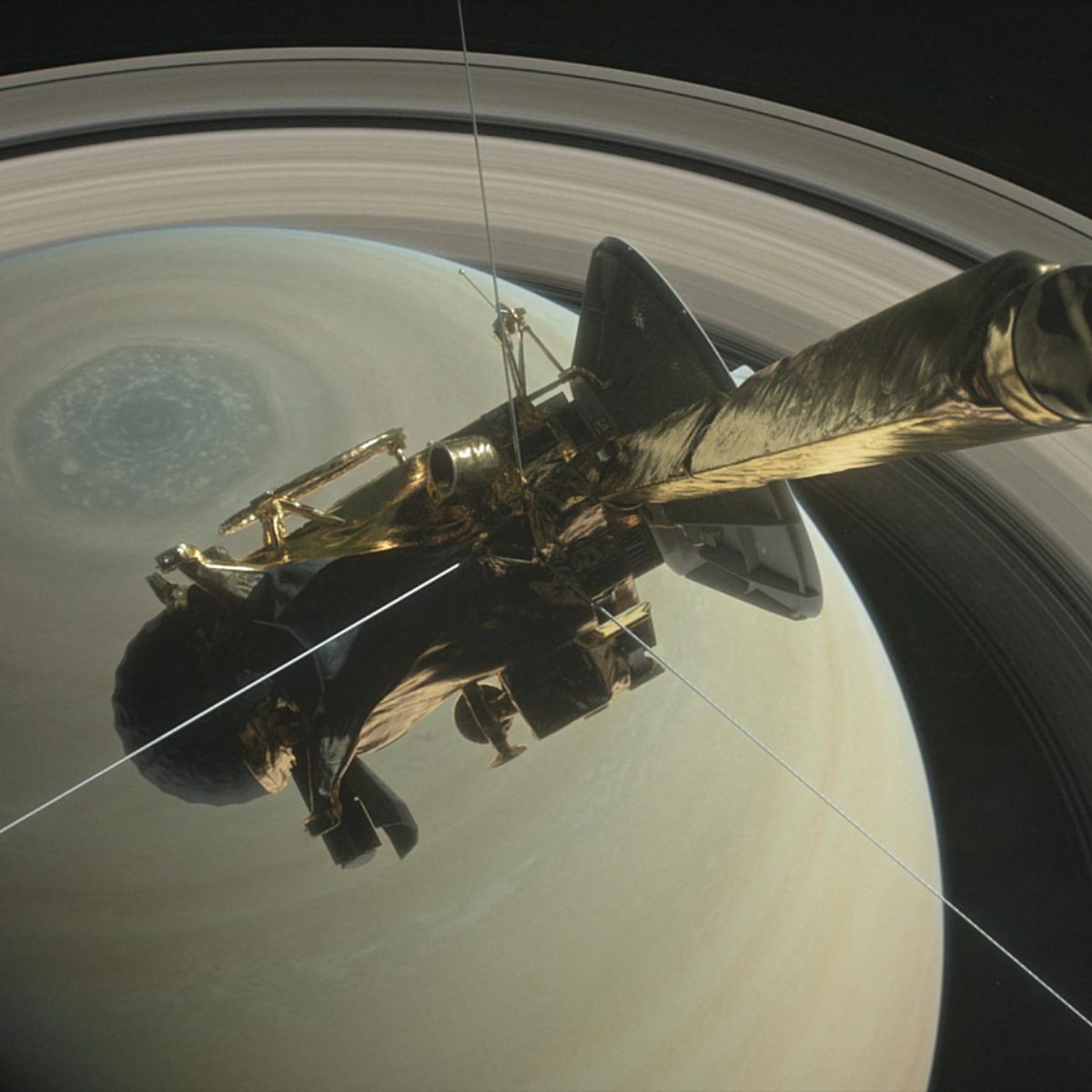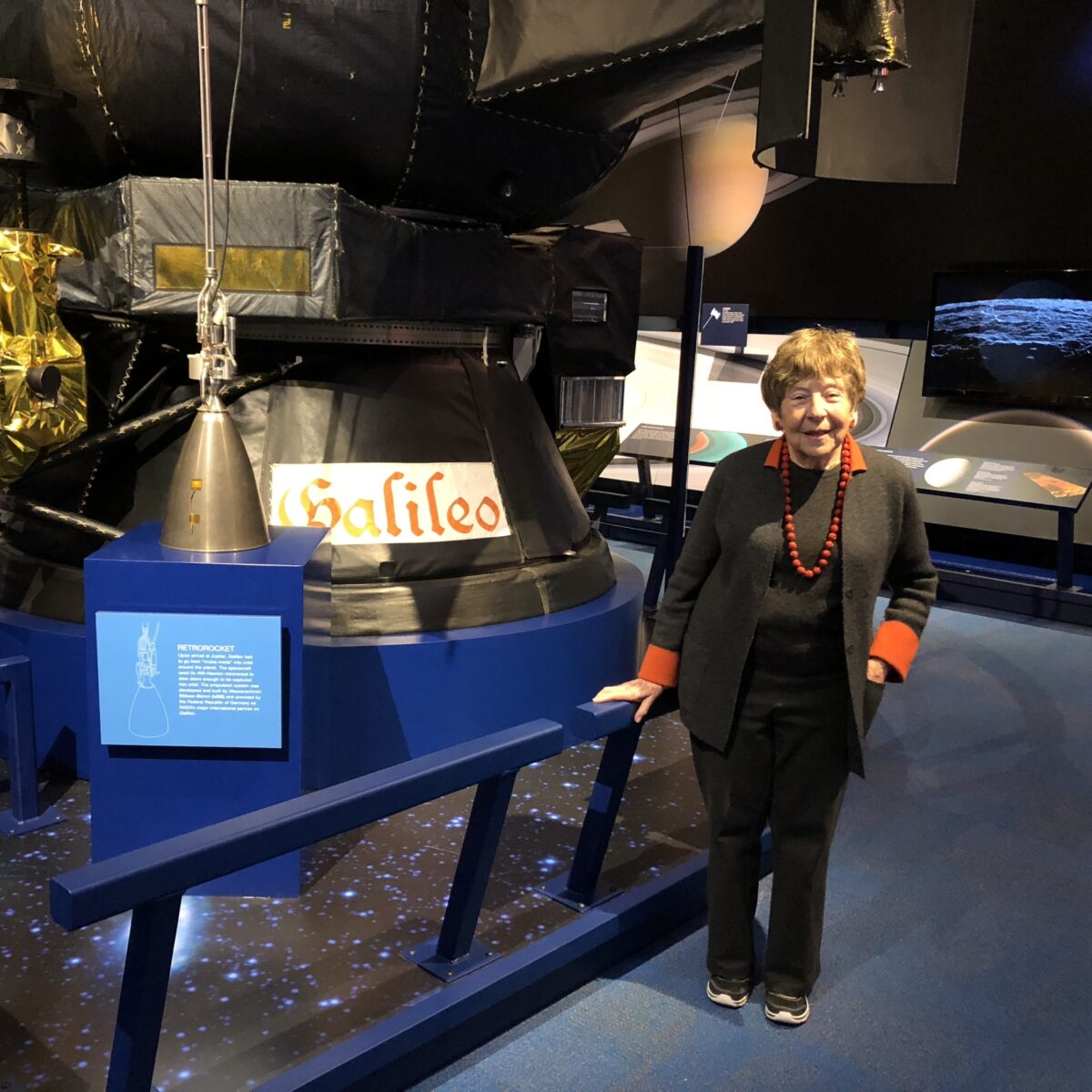Since 2002, Planetary Radio has visited with a scientist, engineer, project manager, advocate, or writer who provides a unique perspective on the quest for knowledge about our Solar System and beyond. The full show archive is available for free.
Search Planetary Radio
We explore recent solar activity and discoveries from NASA's Parker Solar Probe with Nour Rawafi, the mission's project scientist.
Bob Pappalardo, Europa Clipper's project scientist, visits The Planetary Society headquarters in Pasadena, CA, to share the story of the mission's vault plate, humanity's next collection of messages to another world.
Chris Glein, a lead scientist at the Southwest Research Institute, joins Planetary Radio to talk about the discovery of phosphorus in the oceans of Saturn’s moon Enceladus and the implications for the search for life.
NASA's Dragonfly mission to Saturn's moon Titan has been authorized to proceed with work on final mission design and fabrication. This week on Planetary Radio, we get an update on the mission's progress and new timeline.
Voyager project manager Suzanne Dodd and Voyager project scientist Linda Spilker discuss reestablishing contact with Voyager 2 and Carver Bierson from Arizona State University tells the tale of how Io went from a water-rich moon into a world with lakes of lava.
Kevin Trinh from Arizona State University joins Planetary Radio to discuss his research into Europa's formation history and the consequences for the moon's habitability.
Chris Glein, a lead scientist at the Southwest Research Institute, joins Planetary Radio to talk about the discovery of phosphorus in the oceans of Saturn’s moon Enceladus and the implications for the search for life.
Sam Birch, an assistant professor at Brown University, explores what we know about the alluvial rivers of Earth, Mars, and Saturn's moon Titan.
Richard Durisen and Paul Estrada join Planetary Radio to discuss their research on the surprisingly recent formation of Saturn's rings and why they are disappearing over time.
Sarafina El-Badry Nance joins Planetary Radio to discuss her new book, Starstruck: A Memoir of Astrophysics and Finding Light in the Dark.
Join us as we celebrate the successful launch of the European Space Agency's Juice mission with project scientist Olivier Witasse.
Join us as we celebrate the accomplishments of a truly inspiring space mission - the United Arab Emirates' Hope probe, which has spent two amazing years orbiting Mars!
Planetary Radio’s creator Mat Kaplan guest hosts for this look back at the Jet Propulsion Lab’s celebration of the 45th anniversary of the Voyager mission.
We celebrate the James Webb Space Telescope's first confirmed exoplanet discovery this week on Planetary Radio. Jacob Lustig-Yaeger, one of the leads on the team that made the detection, joins us to discuss the details.
Dive into the latest discoveries about Jupiter’s moons, Ganymede, Europa, and Io, with Scott Bolton, the principal investigator for NASA’s Juno mission.
For his last episode as host, Mat Kaplan welcomes many of his Planetary Society colleagues for a review of a spectacular year of space exploration.
Cassini Mission Project Scientist Linda Spilker has now taken on the same job for the Voyager Interstellar Mission.
It’s a party for Voyager and the team of scientists, engineers and others who have followed it across our Solar System. Then we’ll visit with Ann Druyan, creative director for the Voyager Golden Record.
We were there when the Cassini spacecraft ended 13 years of exploration and revelation at Saturn.
A fascinating conversation with a space science and policy leader who is still hard at work in her 10th decade.


 Explore Worlds
Explore Worlds Find Life
Find Life Defend Earth
Defend Earth


